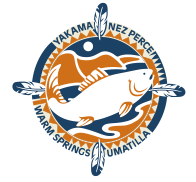Supportive Breeding Boosts Natural Population Abundance with Minimal Negative Impacts on Fitness of Wild Chinook Salmon in Johnson Creek
Abstract
A supplementation program, using 100% natural-origin fish for broodstock, for summer Chinook was initiated in Johnson Creek in 1998 to prevent extirpation and enhance natural production of this population within the Snake River spring/summer Chinook Salmon Evolutionary Significant Unit listed as threatened under the Endangered Species Act. Pedigrees of two complete generations were tracked with molecular markers to investigate differences in reproductive success (RS) of wild and hatchery-reared Chinook Salmon spawning in the natural environment to address questions regarding the demographic and genetic impacts of supplementation to a natural population. We conclude that fish chosen for hatchery rearing did not have a detectable negative impact on the fitness of wild fish by mating with them for a single generation. Results suggest that supplementation following similar management practices (e.g. 100% local, wild-origin brood stock) can successfully boost population size with minimal impacts on the fitness of salmon in the wild.
Authors
Citation
Hess, M.A., C.D. Rabe , J. Vogel, J. Stephenson, D.D. Nelson, and S.R. Narum. 2012. Supportive breeding boosts natural population abundance with minimal negative impacts on fitness of wild Chinook Salmon in Johnson Creek. Future or Our Salmon Conference, October 17-18, 2012. Portland, OR.
